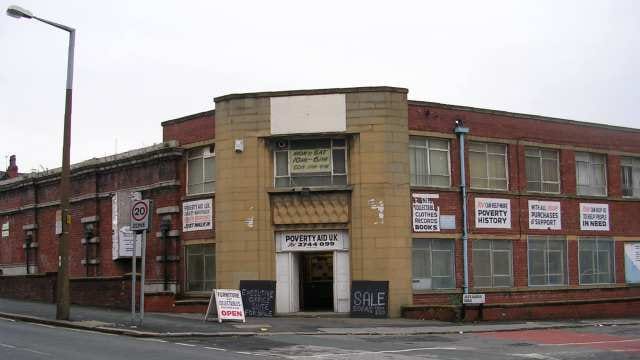Picture a country where a fifth of the population lives in poverty. People have to choose between eating or heating their homes and children go to school hungry. Homelessness is rising. And basic services are in crisis, leaving many struggling to cope.
This is the damning indictment, delivered by a UN official, not of a developing economy or war-torn nation but of the UK – the world’s fifth biggest economy.
The UN’s Special Rapporteur on extreme poverty and human rights, Philip Alston, says the UK government’s austerity-driven policies in the years since the 2008 financial crash have created “a harsh and uncaring ethos” that has removed the social safety net and is driving up poverty.
His report, which the government called “barely believable”, comes after he visited the UK at the end of 2018 and spoke to many British people to assess the state of the country.
Cracks in the system
A fundamental overhaul of the benefits system and widespread cutbacks have placed increasing pressure on already stretched and underfunded services including the police and doctors, the report says. The “punitive, mean-spirited and often callous” approach taken by government to supporting society’s most in need has driven further inequalities.
Underlining the issues, the report points to:
- Significant increases in homlessness and rough sleeping in the years since 2010 – the charity Shelter estimates 320,000 people in Britain are now homeless and research by another charity, Crisis, suggests 24,000 people are sleeping rough, more than twice the government’s estimate
- The shortfall in social housing being built – there were 1.2 million people waiting for social housing in 2017 but fewer than 6,000 homes built
- Over a tenth of the population experiencing fuel poverty
- Widespread use of food banks, with more than 2,000 in the UK today compared to just 29 at the height of the financial crisis.
A report by social mobility organisation the Joseph Rowntree Foundation found the UK spends around £78 million to combat poverty a year, with £1 in every £5 spent on public services going to alleviate the impact of poverty on people’s lives.
The UN report accuses the government of failing to acknowledge the seriousness of the plight caused by poverty in the UK, which it says it doesn’t monitor in a comprehensive way.
In response, the government pointed to the UN’s own data that the UK comes 15th on the list of the happiest places in the world to live.
“This is a barely believable documentation of Britain, based on a tiny period of time spent here. It paints a completely inaccurate picture of our approach to tackling poverty,” a spokesman said.
“All the evidence shows that full-time work is the best way to boost your income and quality of life,” he added.
Minsters criticised the report as poorly researched.
It is only the second time a poverty envoy has visited Western Europe since 2000, the other time being to Ireland. In that time, the US has been visited twice.
The report did highlight some positive developments in the UK, including the role of the minimum wage in reducing low pay, and changes to the benefits system which will lift 200,000 people out of poverty.
Divided and unequal
The UK’s growing social inequalities and struggles to deliver inclusive growth were highlighted in the World Economic Forum’s Inclusive Development Index 2018, which found the country lagging behind many of its peers.
It ranked 21st overall, falling near the bottom on many of the key indicators including healthy life expectancy and income inequality.
This article was originally published on the website of the World Economic Forum.
Also read: UK study conducted in India finds children born into poverty have weaker brain activity






